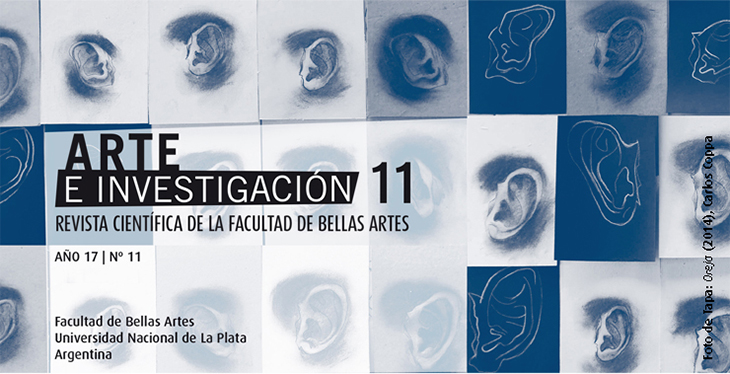La voz en la composición de Historia del llanto
Keywords:
Instrumentation, voice, composition, homogeneity, speech intelligibilityAbstract
The area of research in which this article is inserted proposes, among other activities, including in the work composition questions arisen in the investigation as a stage of deepening studies. This work presents the issues related to the treatment of the voice and instrumentation developed in the composition of Historia del llanto. The analysis deals with the design of the vocal or vocal-instrumental conformations and their possible results, including speech intelligibility, according to the vocal modes utilized.Downloads
Downloads
Published
How to Cite
Issue
Section
License
The acceptance of the manuscript by the magazine means the non-exclusive cession of the property rights of the authors in favour of the editor, who allows the reuse, after publication (post print), under a license Attribution-NonCommercial-NoDerivatives 4.0 International. According to these terms, the material can be copied and redistributed by any means or in any format as long as a) the author and original source of the publication are quoted (magazine and URL of the work), access to the license is provided and whether changes have been made is mentioned; and b) the material is not used for commercial purposes.
The cession of non-exclusive rights means that after the publication (post print) in Arte e Investigación the authors can publish their work in any language, means and format; in such cases it must be mentioned that the material was originally published in this magazine. Such cession also means the authorization of the authors for the work to be collected by SEDICI, the institutional archive of the National University of La Plata, and to be spread in the databases that the editorial team considers appropriate to increase the visibility of the publication and its authors.
Moreover, the magazine encourages the authors to deposit their productions in other institutional and thematic archives under the principle that offering the society the scientific and academic production without any restrictions contributes to a greater exchange of the global knowledge.


































